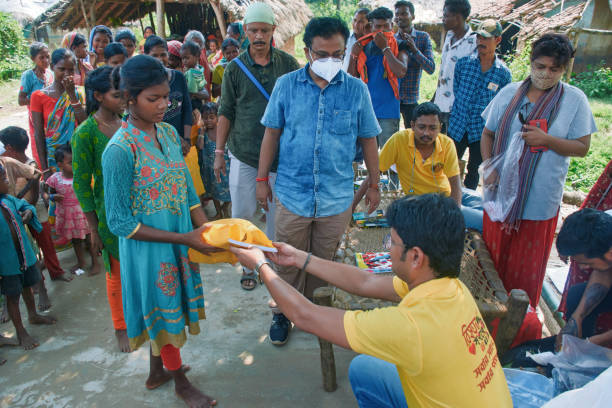Non-Governmental Organizations (NGOs) play a vital role in addressing societal issues and working towards the betterment of underprivileged communities. As independent and non-profit organizations, NGOs operate autonomously, collaborating closely with government agencies to implement projects and initiatives. Therefore, the roles and functions of NGO in Noida is really a significant one and serve the major purpose of development and growth.

Role of NGOs in Development of Society
1.Defining NGOs and Their Functions
NGOs acquire legal status by registering under the Societies Registration Act, which is a central act for non-profit registration. They encompass a diverse range of organizations, including non-governmental, quasi-governmental, voluntary, and non-voluntary entities. NGOs serve as intermediaries between the government and citizens, addressing issues that may go unnoticed or unresolved by the government. They aim to create a better world for all individuals who are suffering or marginalized.
2. Focusing on Human Rights and Advocacy
One of the primary functions of NGOs is to advocate for human rights, including child rights. NGOs work tirelessly to address social injustices, poverty eradication, and ensure the well-being of vulnerable populations. They raise awareness about social, political, and environmental issues and strive to improve the conditions of society on a broad scale.
3. Promoting Social Justice and Equality
NGOs actively work towards preventing social injustice and bridging the gaps in society. They aim to create a fair and equal society by promoting gender equality, empowering women, and fighting against practices such as dowry and cruelty. NGOs play a significant role in building community participation, facilitating meaningful dialogues with disadvantaged communities, and fostering trust and confidence.
4. Environmental Conservation and Sustainable Development
NGOs recognize the importance of sustainable development and work towards conservation of the environment. They play a crucial role in preventing over utilization of natural resources, which can lead to environmental threats, health problems, and natural calamities. Through awareness campaigns and control measures, NGOs strive to preserve natural resources for future generations.
5. Improving Government Performance
NGOs act as catalysts in ensuring government responsiveness and accountability. They monitor government performance, provide suggestions for improvement, and advocate for policy changes. By conducting independent research and offering expertise, NGOs contribute to policy making and encourage flexibility and transparency within the government.
6. Women Empowerment and Gender Equality
NGOs have made significant contributions to women empowerment and gender equality. They actively combat social menaces such as dowry, cruelty, and discrimination against women. NGOs work towards educating women, lowering female infanticide rates, and providing employment opportunities. Several foundations, including Setu Foundation, Eklavya, and Environmental Action Group, are actively involved in promoting women’s rights.
7. Service Delivery and Humanitarian Relief
NGOs serve as crucial service providers, delivering essential humanitarian aid and other social services. They work to fulfill the basic needs of marginalized communities, including healthcare, education, and livelihood support. Noida NGOs play a pivotal role in areas affected by natural disasters and humanitarian crises, providing immediate relief and assisting in long-term recovery efforts.
8. Advocacy and Awareness
NGOs serve as advocates for individuals and communities. They conduct research, analyze prevalent issues, and raise public awareness through media campaigns and activism. NGOs act as mediators and facilitators in conflict resolution and act as watchdogs, monitoring and evaluating government and corporate performance and accountability.
Conclusion
NGOs play a vital role in driving social development and creating positive change in society. Through their various functions and activities, NGOs address critical issues related to human rights, social justice, environmental conservation, and sustainable development. They bridge the gaps left by the government, work towards empowering marginalized communities, and advocate for policy changes. The contributions of NGOs are instrumental in improving the socioeconomic conditions of the country and ensuring a better future for all.





Comments